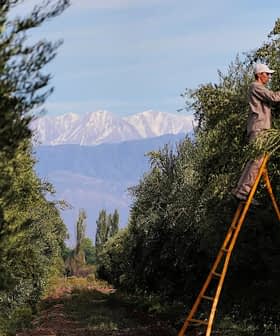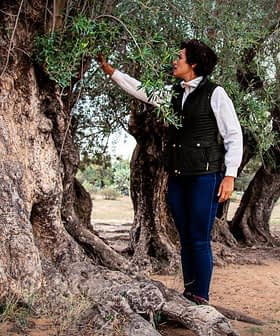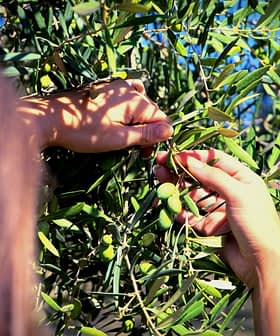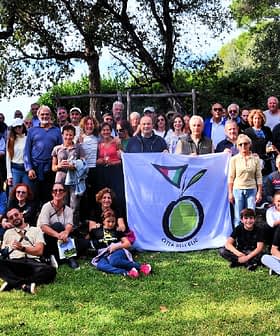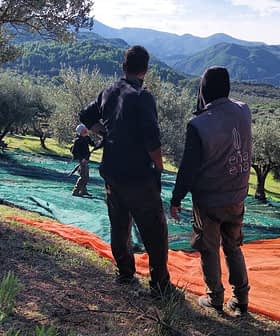U.S. Producers Weathered a Difficult Season and Emerged with Good Results
Although the yield is expected to be 50 percent lower than last year, there are reasons for a positive outlook.
 (Photo: Séka Hills)
(Photo: Séka Hills)  5.1K reads
5.1K readsProducers across the United States, from California to Georgia, overcame extreme weather events to celebrate success at the 2023 NYIOOC World Olive Oil Competition. Award-winning producers from California, Georgia, Oregon, and Texas have already earned a total of 65 awards at the competition, with California experiencing a below-average harvest due to erratic weather patterns.
Part of our continuing special coverage of the 2023 NYIOOC World Olive Oil Competition.
From frost in California to hurricanes in Georgia, producers across the United States overcame a year marked by extreme weather events and celebrated their success at the 2023 NYIOOC World Olive Oil Competition.
With awards continuing to be announced this week, producers from California, Georgia, Oregon and Texas have already combined to earn 65 awards at the world’s largest olive oil quality competition.
In California, which is responsible for nearly all commercial U.S. olive oil production, producers experienced a below-average harvest.
According to the Olive Oil Commission of California, the Golden State produced 1.94 million gallons (7.34 million liters) of olive oil in the 2022/23 crop year, 20 percent below the rolling five-year average.
See Also:The Best U.S. Extra Virgin Olive Oil“The 2022 California olive harvest was down… from recent harvests, and this included our harvest,” Jim Etters, the director of land management at Séka Hills, told Olive Oil Times. “This is due to the combination of an alternate bearing year and the erratic weather patterns experienced last year.”
The northern California producer overcame a warm winter followed by spring frosts, which damaged many trees across the state, to win a Silver Award for its medium-intensity Arbequina.
“We work extremely hard to produce the highest quality extra virgin olive oils that are recognized among the best,” Etters said. “It means a tremendous amount when leading experts agree. We have received Gold for previous harvests, so Silver is wonderful, but Gold is always what we strive for.”
Located in northern California’s Capay Valley, not far from Sacramento, Séka Hills is produced by the Yocha Dehe Wintun Nation, a Native American tribe.
“Séka Hills certified extra virgin olive oils reflect the Yocha Dehe Wintun Nation’s deep, millennia-long connection with the fertile land of the Capay Valley,” Etters said. “Séka Hills is focused on producing only the finest quality products that thrive in the unique Capay Valley environment.”
“Olive growers and producers in Capay Valley and the region (Western Yolo County and Solano County) are frequent, consistent award winners,” he added. “Olives and many other crops thrive here. The Tribe has increased its olive acreage from 82 to 500 acres (33 to 200 hectares) and has seven orchards. We say Capay Valley is to olives as Napa Valley is to wine.”
About 400 kilometers south of Capay Valley, California’s San Luis Obispo County producers may dispute Etter’s claim about the Capay Valley. California’s Central Coast region usually is responsible for a significant share of the country’s NYIOOC awards.
Among the award-winning producers hailing from the county is The Partridge Family Olive Company, which earned a Gold Award for its medium blend.
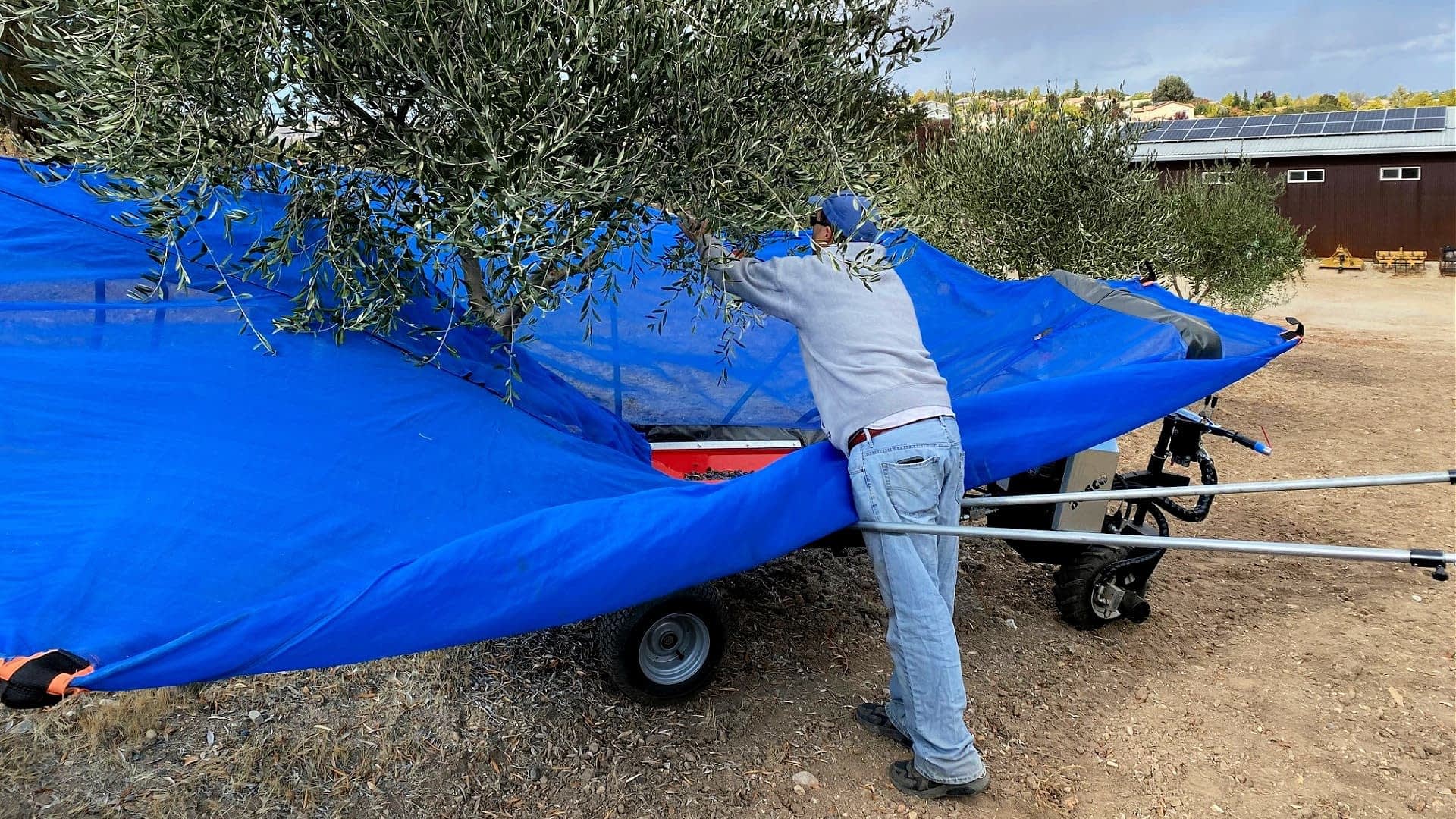
The Partridge Family Olive Company attributed their NYIOOC success to San Luis Obsipo County’s climate and their expert miller.
“San Luis Obispo County is known for its Mediterranean regional micro-climates, making it one of California’s famous wine regions,” co-owners Angela, Mike and Shelby Partridge told Olive Oil Times. “Our summers are hot and dry with cooling afternoon breezes due to the coastal influence — just perfect growing conditions for grapes and olives.”
The region’s climate drew Angela Partridge’s father to Paso Robles after he emigrated from Naples, Italy, in 1980.
The Partridge family said they were elated when their Gold Award was announced. “Every year, we enter knowing the NYIOOC is the most prestigious competition, yet the most difficult to medal at. So to be awarded another Gold is such an honor for us,” they said.
For the family, the award is even more gratifying after the challenges posed by California’s drought, which resulted in severe water shortages in the county.
“Last year, California was still in drought conditions, so watering was one of our biggest challenges,” the family said. “Our tonnage was okay, but the oil yield was low because there was just not as much flesh around the olive pit. Our unending challenge is consistency since we are a micro producer.”
The family attributed their NYIOOC success to the help of their friends and millers, Yves and Clotilde Julien. “We feel growing is half the battle,” the family said. “The other half is the magic they do, and without the expertise and recommendations they provide us to make their job easier, producing extra virgin olive oil would be very difficult.”
Roughly 100 kilometers east of Paso Robles, in Kerns County, the producers behind Rio Bravo Ranch celebrated winning their first three Gold Awards at the World Competition.
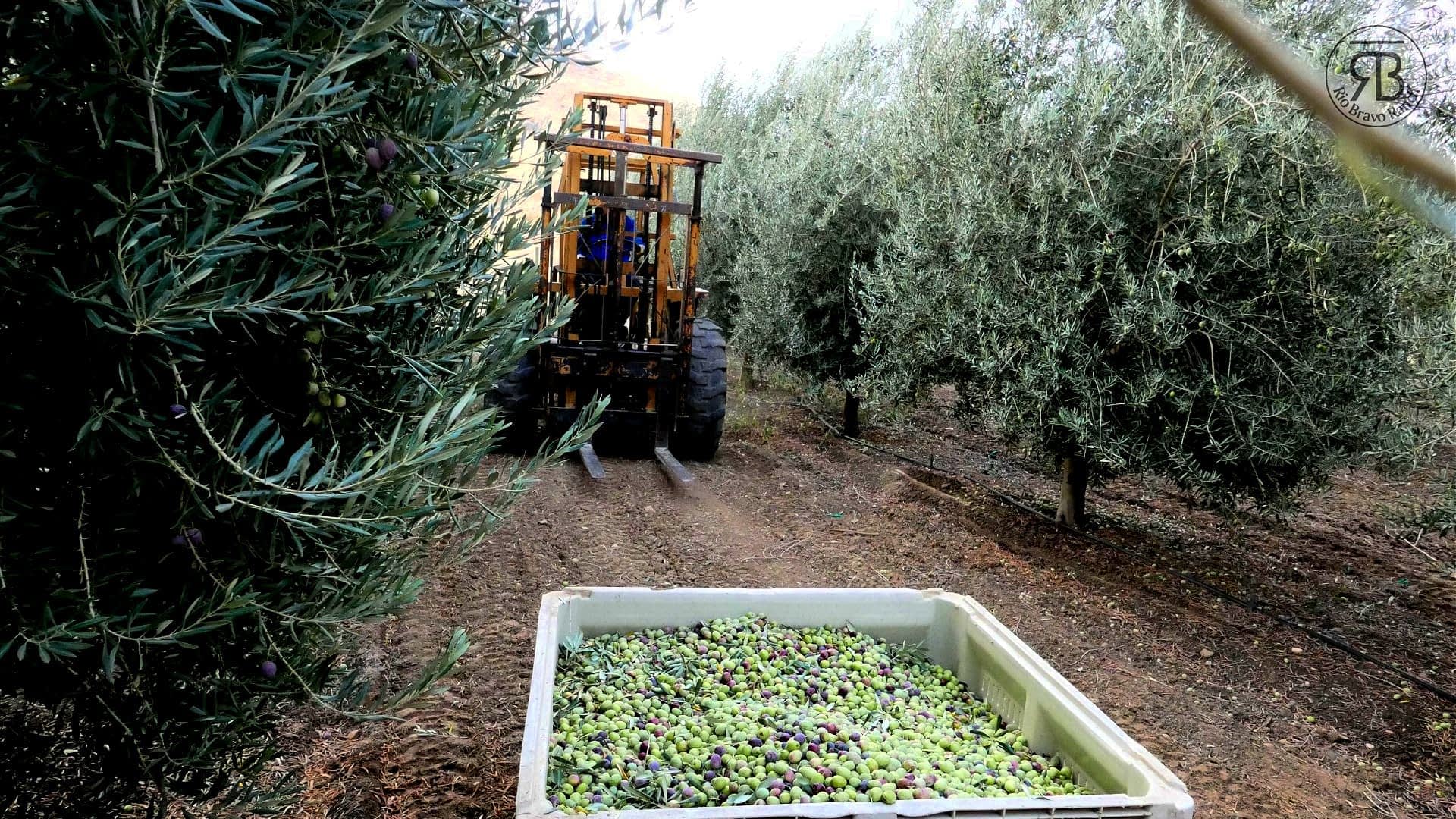
The producers at Rio Bravo Ranch believe olive trees can continue to thrive in Kern County, California.
“We were pretty excited, to say the least,” executive assistant Stefanie Wickensheimer told Olive Oil Times. “This is the first Gold we’ve won at the NYIOOC, and three of our oils won the prestigious award.”
She partially attributed the company’s success to the work of master millers Yves and Clotilde Julien. Still, she added that the work to produce award-winning olive oil begins well before the olives arrive at the mill.
“High-quality extra virgin olive oil starts on the tree,” Wickensheimer said. “We are farmers first, so we focus on producing the best quality olive crop possible.”
“Irrigation, weather and tree health are just a few of the conditions that can have a negative effect on the crop, so we have to be on top of what we can control,” she added. “Our focus each year is to farm and harvest for quality rather than quantity.”
Unlike many of their colleagues, Wickensheimer said Rio Bravo Ranch enjoyed a smooth harvest year and is already looking forward to the coming harvest.
“Kern County is a top agricultural producer in the U.S. but doesn’t have many olive acres,” she said. “We have a micro-climate with well-drained rocky soils that allow the olive trees to thrive. We are also fortunate that our olives mature early enough in the season to where we don’t have to worry about having any frost damage.”
Wickensheimer said Rio Bravo Ranch is a small family farm, and winning at the NYIOOC helps make the brand more recognizable.
“Our goal each year is to become more of a household brand and continue to educate consumers on the difference a good quality olive oil can have on their health and lifestyle,” she said.
In terms of quantity, virtually all U.S. olive oil production occurs in California. Still, other pockets of olive growing exist across the country.
Texas is the second-largest olive oil-producing state in the U.S. and home to Texas Hill Country Olive Company, which earned a Gold and two Silver Awards at the competition.
“We were elated to win again this year,” co-owner Cara Gambini told Olive Oil Times. “It’s always a happy surprise, letting us know we are on the right track.”
“Winning awards at NYIOOC is an excellent benchmark for us,” she added. “It’s humbling to go up against some of the greats around the world and win.”
Gambini said this year’s harvest came exclusively from California as the groves in Texas continue to recover from the historic freeze of a few years ago.
“This year’s harvest came from orchards in California,” she said. “Texas is still coming back from a 100-year freeze event that occurred in 2021.”
“We have been facing extreme weather conditions, making it challenging to produce the quality and or quantity of olives needed for the year,” Gambini added.
Meanwhile, in Oregon, California’s northern neighbor, olive oil production is in its infancy, but one trailblazing producer continues to put the state on the olive oil world map.
Durant Olive Mill earned three more Gold Awards at the World Competition, with owner Paul Durant celebrating eight consecutive years of winning in New York.
“This is our eighth consecutive year of winning at the NYIOOC,” he said. “We continue to receive third-party validation of our extra virgin olive oil that is so important for consumers.”
“We were faced with cold weather conditions in early November that forced picking soon than we would have liked,” Durant added.
On the opposite side of the country, the producers behind Fresh Press Farms overcame some unique challenges to win a Silver Award and solidify Georgia’s place in the olive oil world map.
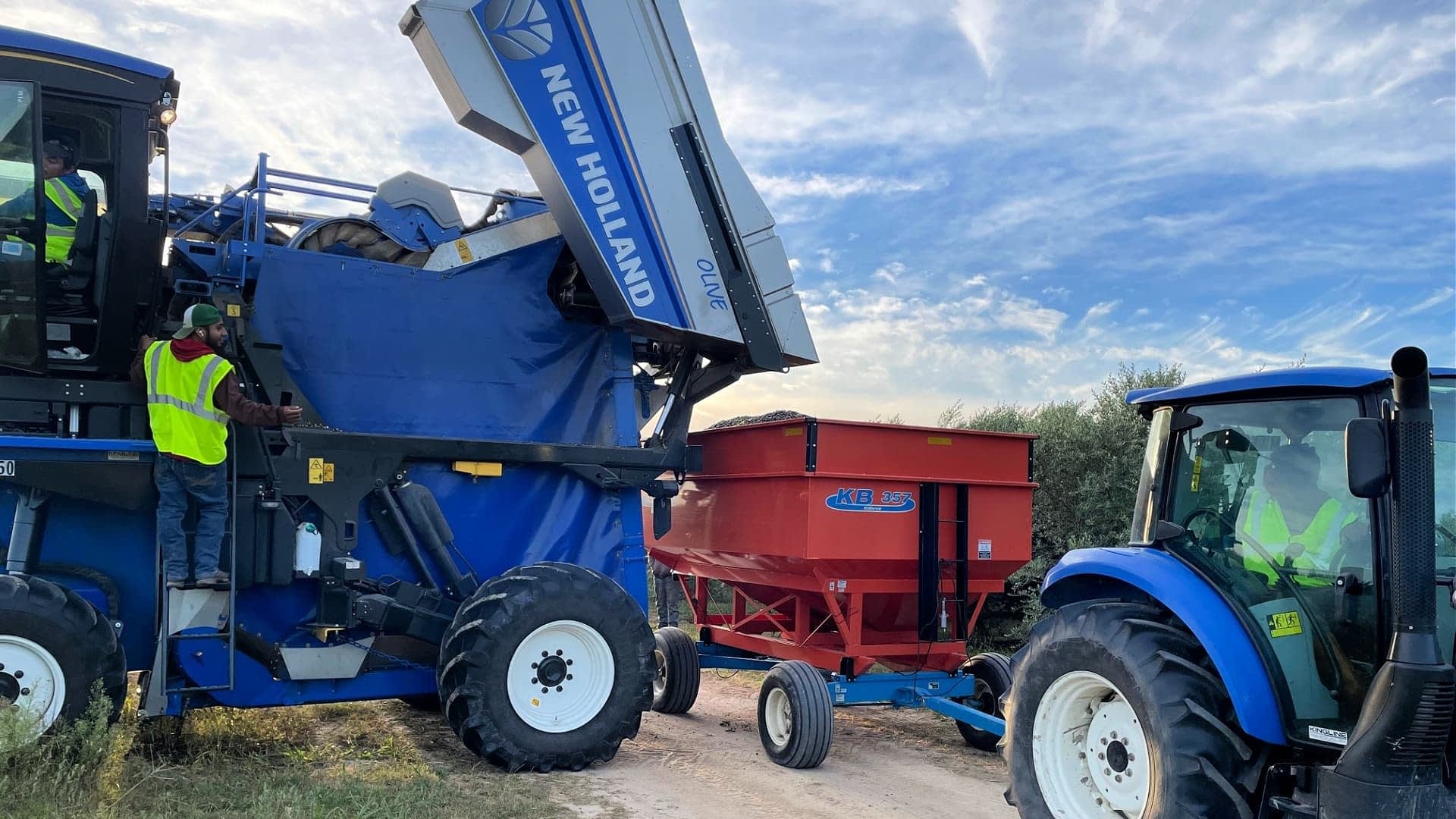
Fresh Press Farms said it is the largest producer east of the Mississippi.
“Georgia is one of the more unique places to grow olives in the world,” agricultural and innovation director Ciriaco Chavez told Olive Oil Times. “Our summers are filled with warm, sunny days, which the trees seem to love and plenty of natural rainfall to support their growth.”
“Additionally, because of our relative proximity to the equator, our harvest is regularly one to two months earlier than other northern hemisphere producers, which means we begin packaging and delivering fresh new season oil before others have even begun harvesting,” he added.
According to its owners, Fresh Press Farms is the largest olive grove in the eastern United States, with more than 2.4 million trees across Southern Georgia.
“As new producers helping to pioneer olive growing in Georgia, we wanted to show that our unique Georgian extra virgin olive oils meet or exceed the quality of oil producers in California or other parts of the world,” Chavez said.
He cited the company’s vertical integration as one of its keys to success in producing award-winning olive oil.
“As one of the only truly fully vertically integrated American producers, we are able to control every facet of production and do the right thing at every set,” Chavez said. “There are no third-party suppliers or middlemen between our consumers and us.”
However, growing olives in Georgia comes with challenges that producers on the West Coast do not have to face.
“Hurricane Ian was making landfall just as we were preparing to begin harvest,” Chavez said. “We are less than 70 miles (110 kilometers) from the Gulf of Mexico, so there was the threat that the hurricane’s path could impact our harvest.”
“Gratefully, we were able to push through and work relentlessly to complete the harvest without any impacts from the hurricane,” he added.
Chavez hopes winning awards at the NYIOOC will help promote Fresh Press Farms’ brand and Georgian extra virgin olive oil in the U.S.
“The NYIOOC is an internationally recognized and respected competition,” he said. “Any time you have a group with its level of credibility saying you’re olive oil is worthy of awards and recognition; it means something.”
Share this article


